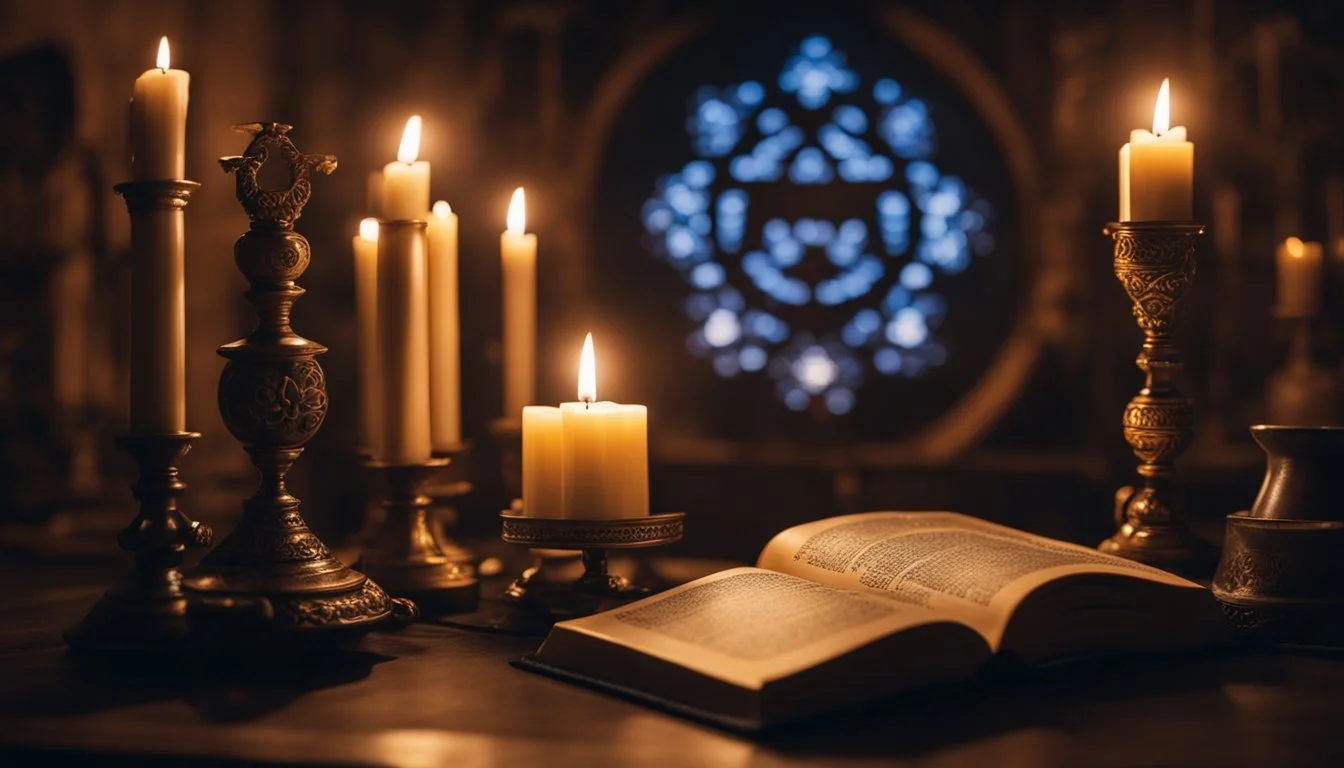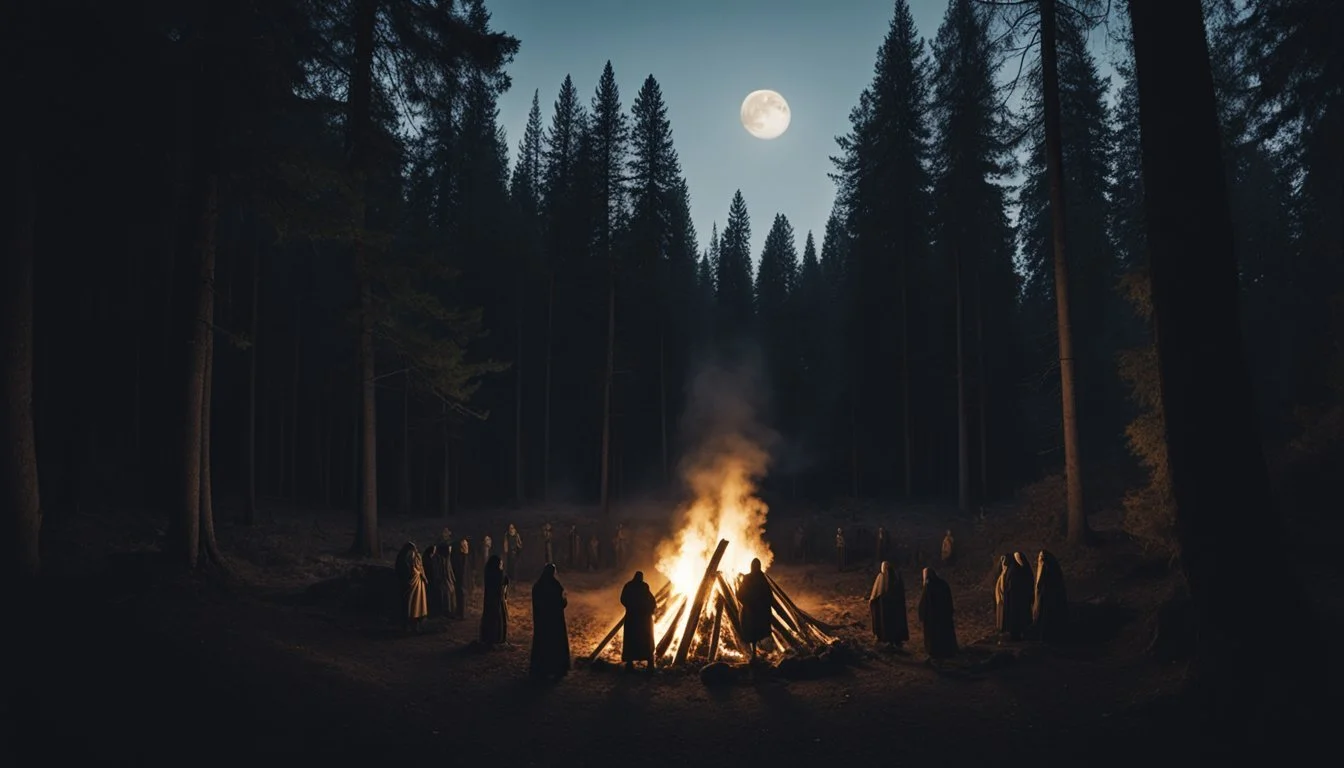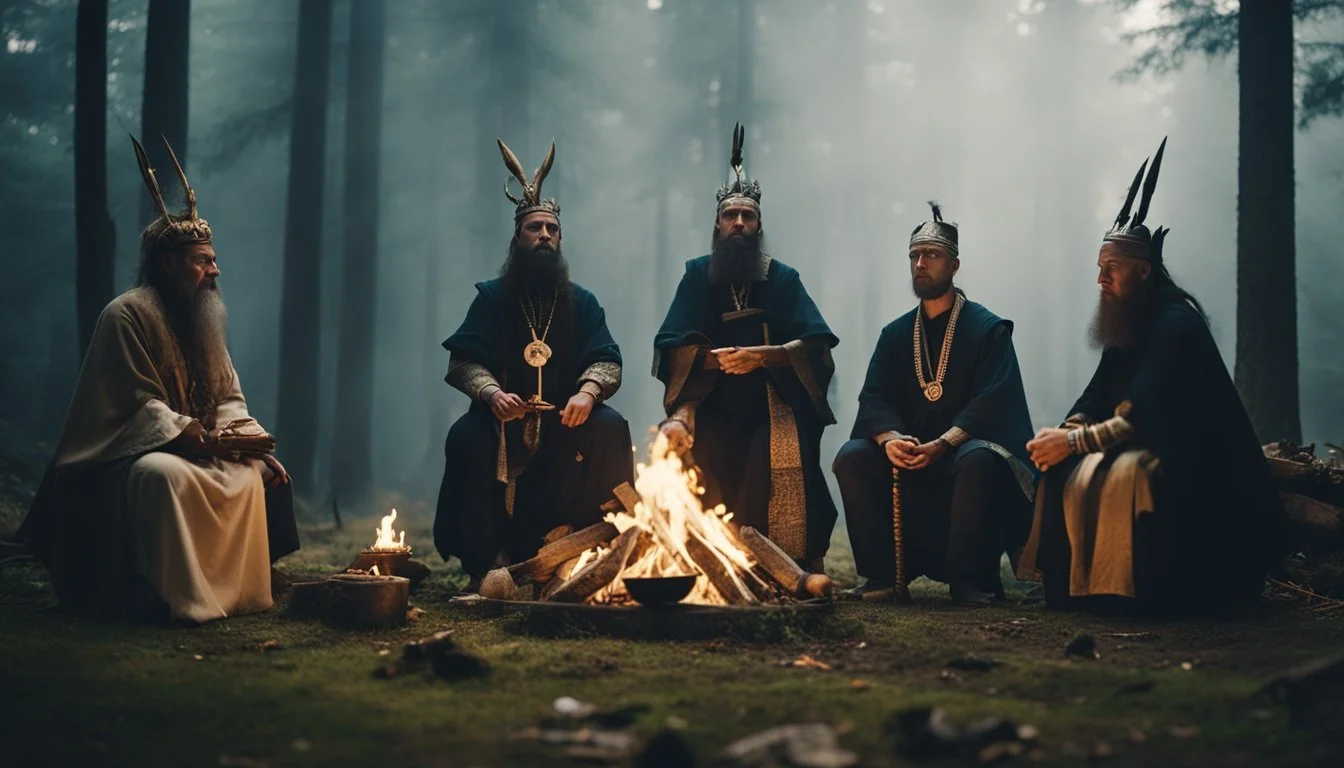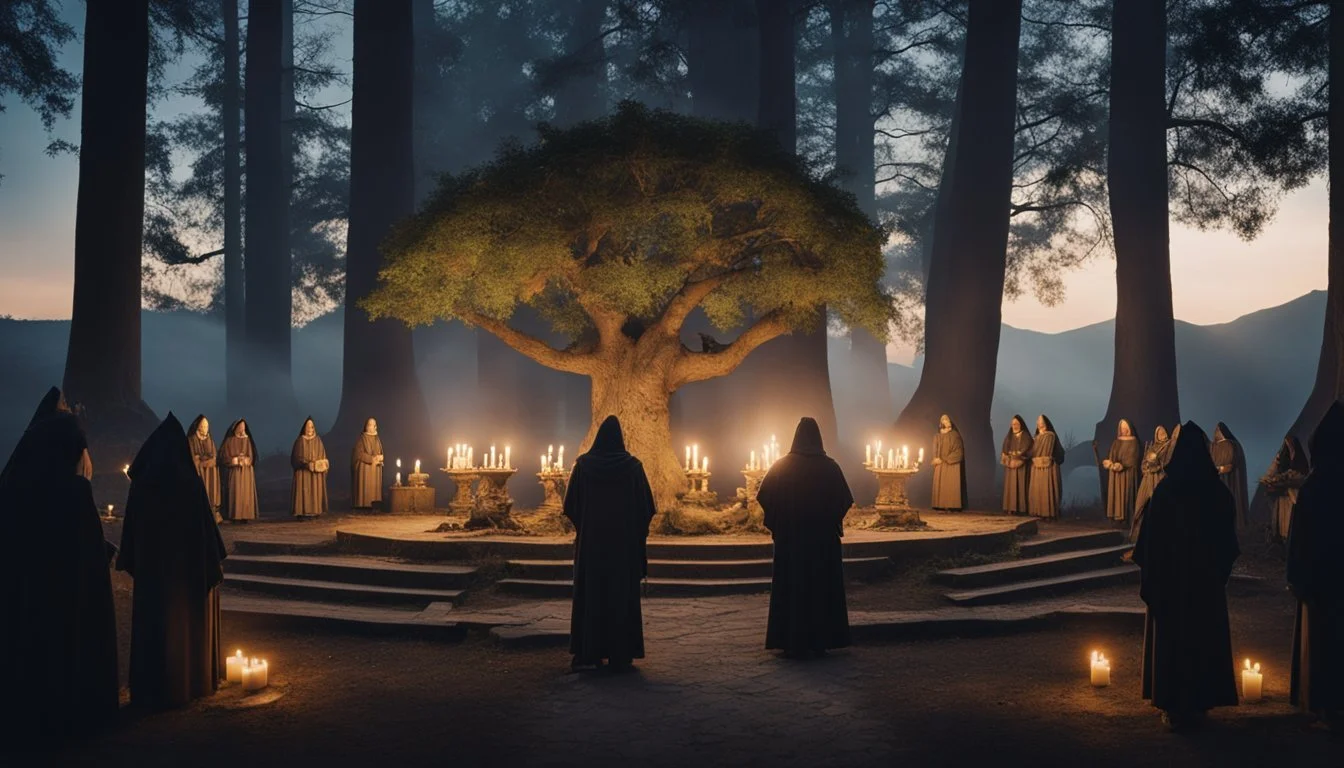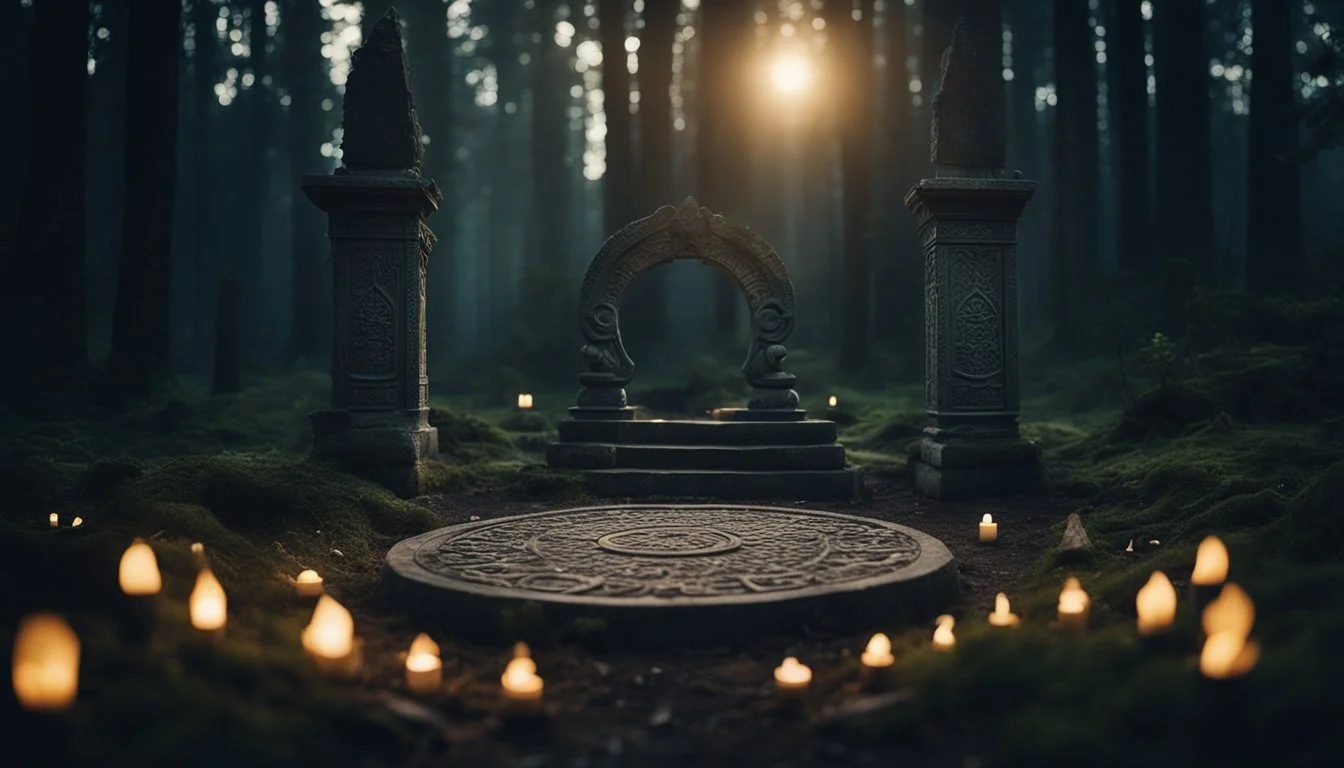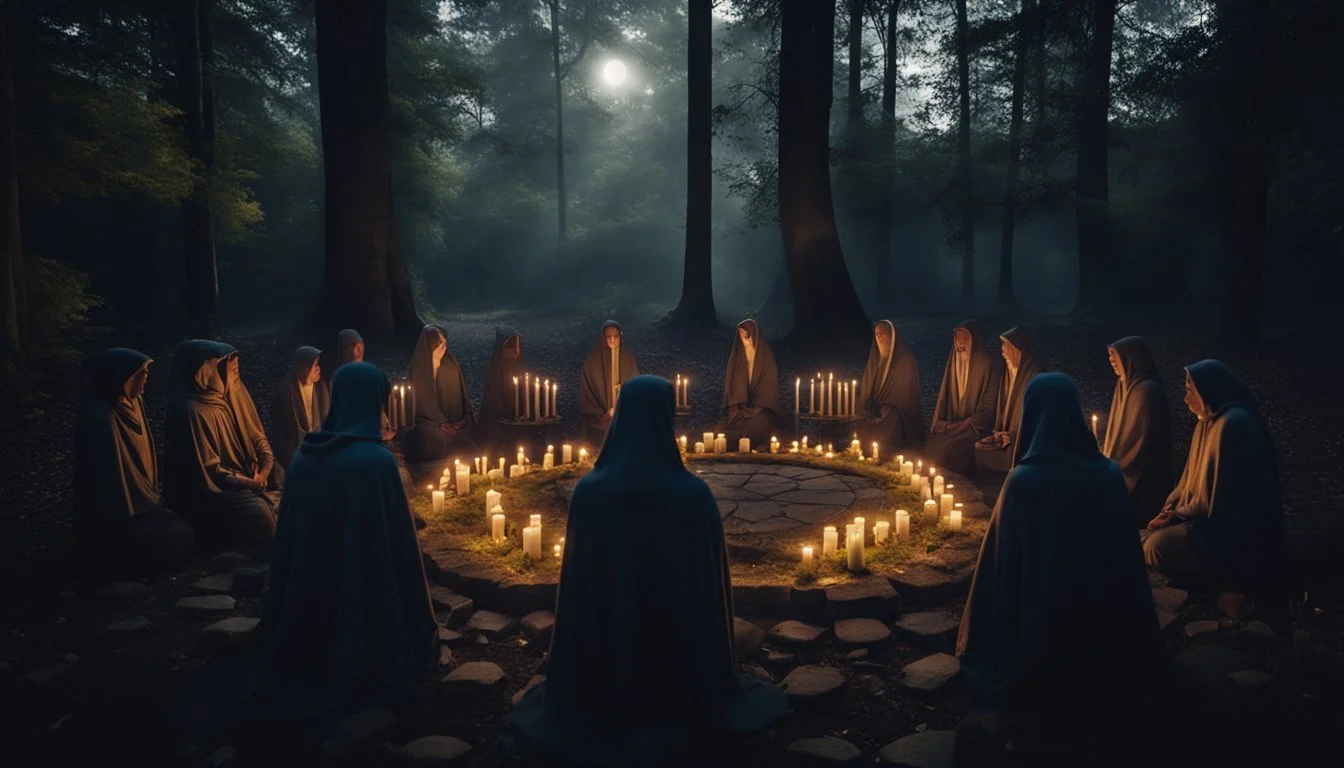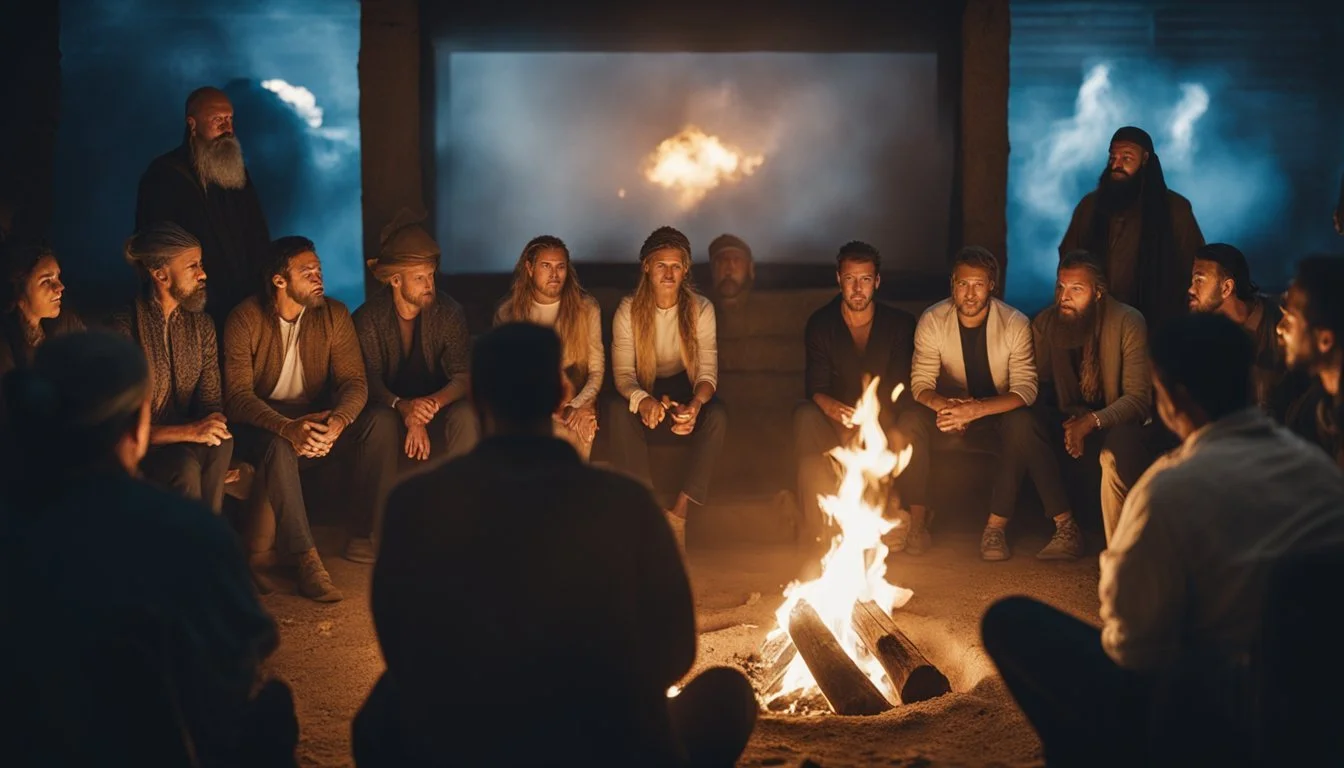7 True Crime Documentaries About Pagan Communities
Uncovering Dark Mysteries
True crime documentaries often delve into the darker aspects of human society, shedding light on mysterious and unsettling events. When combined with the enigmatic nature of pagan communities, the result is a captivating and thought-provoking exploration. These films provide viewers with unique insights into crimes and controversies involving religious and occult practices.
Why do true crime stories focusing on pagan communities captivate audiences? These documentaries often reveal how these insular groups deal with internal conflicts, societal misconceptions, and legal troubles. Each film offers a distinct perspective, illustrating the complexities of faith, belief, and human behavior within these often misunderstood communities.
1) The Occult Crimes of the Family
The documentary The Occult Crimes of the Family (1995) explores a notorious case involving a cult-like group. This group, led by a charismatic figure, engaged in ritualistic practices that culminated in criminal activities.
Known for its disturbing and graphic portrayal of occult rituals, the film sheds light on how vulnerable individuals can be manipulated.
This group, often referred to as "The Family", operated under the guise of a spiritual community. They were known for their clandestine meetings and mysterious ceremonies. The leader of The Family enforced strict control over followers, leading them into committing various crimes.
Law enforcement eventually uncovered the group's illegal activities. The documentary provides insights into the complex dynamics within The Family and the psychological manipulation used by its leader.
For more information on this documentary, visit Wikipedia.
2) Witch Hunt: The True Story of the Yorkshire Ripper (2020)
The true crime documentary "Witch Hunt: The True Story of the Yorkshire Ripper" delves into the chilling crimes of Peter Sutcliffe. He became known as the Yorkshire Ripper after murdering at least 13 women between 1975 and 1980 in England.
The documentary explores not just the heinous acts, but also the police investigation that led to Sutcliffe's capture.
Victims included women across various backgrounds, often taking risks in spite of the palpable fear Sutcliffe instilled. Sutcliffe’s arrest finally occurred in 1980 when he was found driving with false number plates, fitting the description of the elusive killer.
(Find more information here on IMDb.)
3) Pagan Priests: Crime and Rituals
"Pagan Priests: Crime and Rituals" delves into the complex world where ancient religious practices intersect with criminal behavior. The exploration of such documentaries provides insight into the sometimes dark undertones of pagan communities throughout history and in modern times.
One notable documentary in this vein is "The Legacy of the Wicker Man" (2006). This film examines the infamous case of the Wicker Man ritual, where human sacrifices were allegedly made by pagan priests to appease their gods. The documentary explores the historical and cultural context of these rituals. More info.
"Secrets of the Druids" (2013) is another documentary that sheds light on the druids, the priestly class of the ancient Celtic pagan communities. It investigates claims of ritual human sacrifices and their connection to various criminal activities believed to have been conducted by these enigmatic priests. More info.
"The Dark Side of Paganism: Rituals and Crimes" (2011) provides an analysis of various crimes associated with pagan rituals. This documentary seeks to untangle the myths from the facts by presenting real-life cases where pagan priests were involved in serious criminal acts, including murder and illegal rites. More info.
These documentaries offer a window into the interplay between religious practices and criminal activities within pagan communities, emphasizing the need for a nuanced understanding of ancient and modern paganism.
4) Sacred Blood: True Crime in Pagan Cults
Sacred Blood: True Crime in Pagan Cults dives into the dark corners of pagan belief communities where true crime has left a mark. These stories explore the intricate dynamics and often murky practices within these groups.
The documentary examines several high-profile cases, showcasing the thin line between spiritual practices and criminal activities. Key figures in these narratives often blur the distinction between faith and manipulation.
One notable case involves the unraveling of a secretive pagan cult, where leaders exploited their followers under the guise of religious authority. This case highlights how charismatic leadership and unyielding devotion can lead to catastrophic outcomes.
The film also delves into the forensic investigations and legal battles that surround these crimes. The role of law enforcement in infiltrating and dismantling these groups is a significant focus.
Sacred Blood sheds light on the psychological and social factors that make individuals susceptible to such groups. The documentary underscores the importance of awareness and critical thinking in avoiding such dangerous entanglements.
5) Pagan Mysteries: Uncovered Crimes
The documentary "Hail Satan?" (2019) explores the Satanic Temple and its fight for religious freedom and social justice. This film reveals how the group uses their controversial image to challenge societal norms and expose institutional corruption. IMDB
"Witch Hunt" (2008) investigates wrongful accusations of child molestation within a small California community in the 1980s. Misunderstandings and hysteria about pagan rituals led to a series of convictions without solid evidence. IMDB
The film "The Burning Times" (1990) delves into the persecution of women accused of witchcraft during the European witch hunts. This documentary uncovers the patriarchal and social control mechanisms that led to the devastation of many communities. Wikipedia
In "Witches: A Century of Murder" (2015), the focus is on the historical context and social paranoia during the British witch trials. The series examines individual stories to highlight the social dynamics that triggered these tragic events. IMDB
"The Crucible" (1996) is a dramatized retelling of the Salem witch trials, showcasing how fear and superstition resulted in widespread hysteria and wrongful executions. The movie, based on Arthur Miller's play, provides insight into the human cost of these historical trials. Wikipedia
6) Dark Rituals: The Pagan Murders
The documentary Dark Rituals: The Pagan Murders explores a series of grisly crimes tied to pagan rituals. These events occurred in the early 2000s, captivating the public with their eerie connection to ancient practices.
The film effectively documents the investigation led by local authorities. Detectives uncover clues, leading them deeper into a hidden subculture of modern-day pagans practicing dark rituals.
Viewers gain insights through interviews with law enforcement and former members of these communities. They reveal the psychological manipulation and fear tactics used to control followers.
The documentary also examines the victims' lives, painting a heartbreaking portrait of innocence lost. Each life taken is a testament to the dangerous allure of extremist beliefs.
Dark Rituals: The Pagan Murders pairs harrowing personal stories with a thorough dissection of the crimes, ensuring a gripping and informative experience.
More information here
7) Secrets of Pagan Worship: Crime Stories
One documentary that touches upon the intersections of crime and pagan practices is "Secrets of Pagan Worship: Crime Stories" (2023). This film dives into lesser-known crimes within pagan communities. Through interviews, the film examines real cases where individuals abused their beliefs to commit criminal acts.
It highlights the intricate dynamics within pagan groups, showing how spiritual rituals and traditions can sometimes be manipulated. From fraudulent practices to ritualistic crimes, it uncovers the darker aspects lurking behind the spiritual facades.
The documentary also provides insight into how law enforcement deals with crimes that involve unique cultural and religious contexts. It features interviews with officers and experts who have specialized knowledge in handling such cases.
With reenactments and archival footage, the film paints a vivid picture of the conflicts between law and faith. It seeks to educate viewers about the challenges and intricacies of investigating crimes in tight-knit, tradition-bound communities.
For more information, visit Secrets of Pagan Worship: Crime Stories (2023).
Historical Context of Pagan Communities
Pagan communities have origins rooted in ancient times, evolving significantly through history. Their cultural beliefs and practices vary widely but share common themes of nature worship and polytheism.
Origins and Evolution
Paganism dates back to prehistoric times, with evidence found in various archaeological sites. Ancient civilizations such as the Greeks, Romans, and Norse practiced forms of paganism, worshipping multiple gods and goddesses.
The term "pagan" originally referred to rural folk who practiced traditional folk religions. As Christianity spread, it labeled non-Christians as pagans, often with a negative connotation.
By the Middle Ages, many pagan practices were suppressed or assimilated into Christian rituals. However, interest in paganism revived in the 19th and 20th centuries, leading to modern interpretations and communities celebrating these ancient traditions today.
Cultural Beliefs and Practices
Pagan beliefs center on the reverence for nature, the sacredness of natural cycles, and the worship of a pantheon of deities. These deities often represent various aspects of life and nature, such as the sun, moon, fertility, and the harvest.
Rituals and festivals are key components, including seasonal celebrations like solstices and equinoxes. Practitioners also engage in rites of passage, divination, and magic.
Many modern pagans draw from historical texts, folklore, and archaeological findings to reconstruct ancient practices. They often form tight-knit communities, sharing knowledge and participating in group ceremonies that honor their spiritual connections to the past and nature.
Unique Challenges in Documenting True Crime
Documenting true crime involves navigating ethical dilemmas and achieving a balance between respect for real people and the investigative nature of the genre.
Ethical Considerations
Filmmakers must tread carefully to avoid exploiting victims and their families. They need to ensure that their portrayals do not sensationalize tragedies or infringe on the privacy of those affected by the crimes.
Interviewing survivors and witnesses can add valuable perspectives, but it also raises questions about consent and emotional impact. It's crucial to approach these individuals with sensitivity and respect, acknowledging their trauma.
Using real footage and case files can provide authenticity, but it also requires careful consideration of what is appropriate to share. Ethical true crime documentaries strive to inform without causing additional harm to those involved.
Balancing Respect and Inquiry
Balancing investigative depth with respect for subjects requires a delicate touch. Documentaries must present facts and uncover truths without crossing into insensitivity or disrespect. This balance is particularly challenging when delving into the lives of both victims and perpetrators.
Filmmakers need to fact-check rigorously to avoid spreading misinformation. Engaging with experts, such as criminologists or legal professionals, can enhance credibility while ensuring that the narrative remains respectful.
Adopting a neutral tone and avoiding bias is key to creating a compelling yet respectful documentary. Highlighting human stories, while remaining factual and unbiased, helps to maintain this balance.
Impact of True Crime Documentaries on Pagan Communities
True crime documentaries can shape public perception and influence how pagan communities are viewed and treated. These documentaries have sparked a variety of responses from members of these communities.
Public Perception and Misconceptions
True crime documentaries often portray crimes involving individuals associated, rightly or wrongly, with pagan practices. This can lead to widespread misconceptions about pagan communities.
Viewers might erroneously link paganism with criminal behavior, fostering unjust fear and misunderstanding. Some documentaries sensationalize rituals and symbols, distorting their true significance in pagan beliefs. The association of pagan rituals with malevolent acts can propagate harmful stereotypes, increasing stigma. This misrepresentation can complicate efforts for pagans to practice their beliefs openly without prejudice.
Community Responses
Pagan communities have responded to these portrayals in various ways. Some have taken steps to educate the public, emphasizing that their practices are peaceful. Efforts include workshops, public talks, and creating online content to counteract negative stereotypes.
Other members of the pagan community may advocate for more accurate representation in media. These activists engage with filmmakers and journalists to ensure more balanced and respectful portrayals. Additionally, some groups might choose to remain private, wary of attracting unwanted attention or harassment.
Engagement and advocacy are essential for reshaping public views and fostering a more accurate understanding of pagan traditions.


